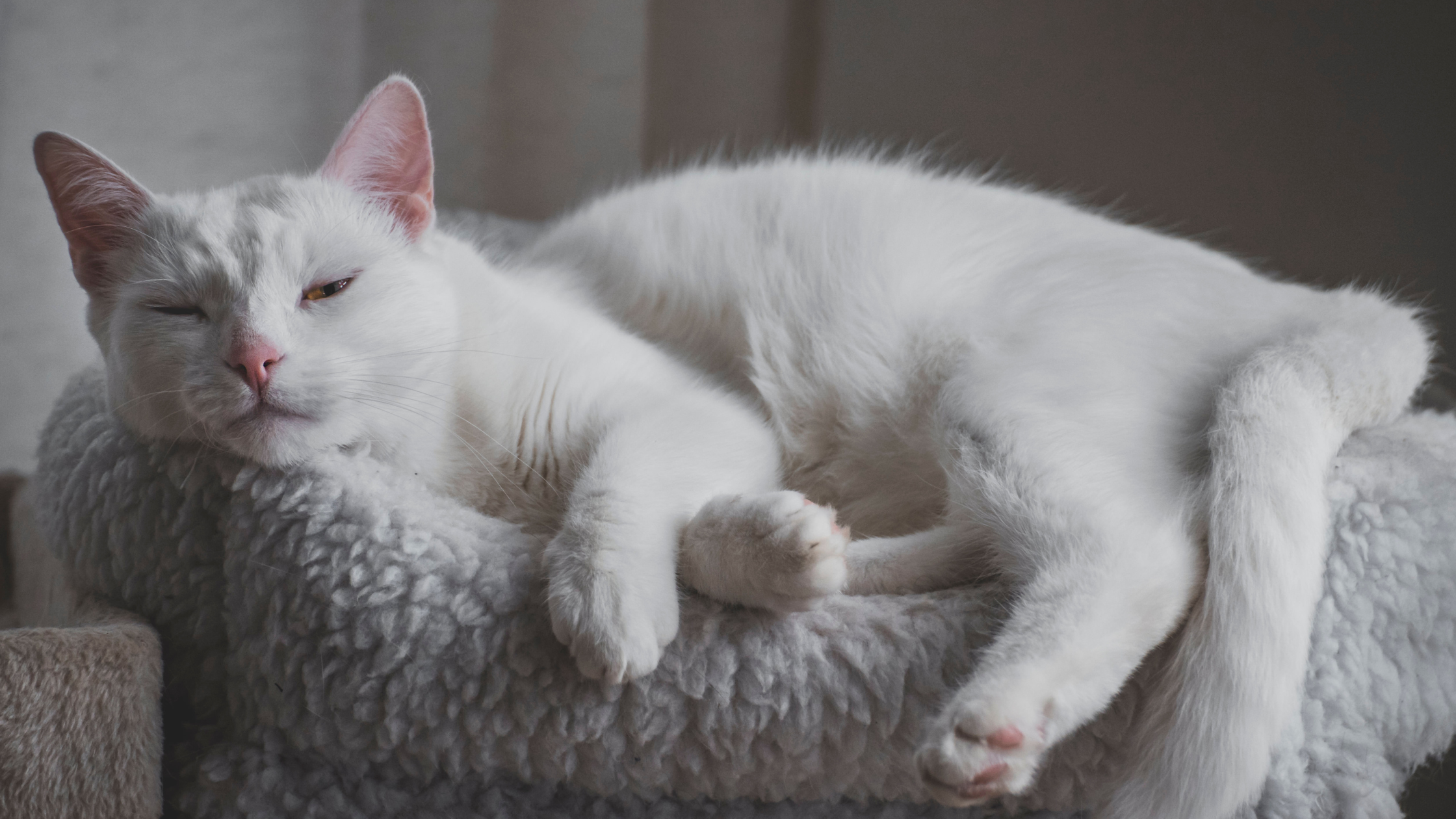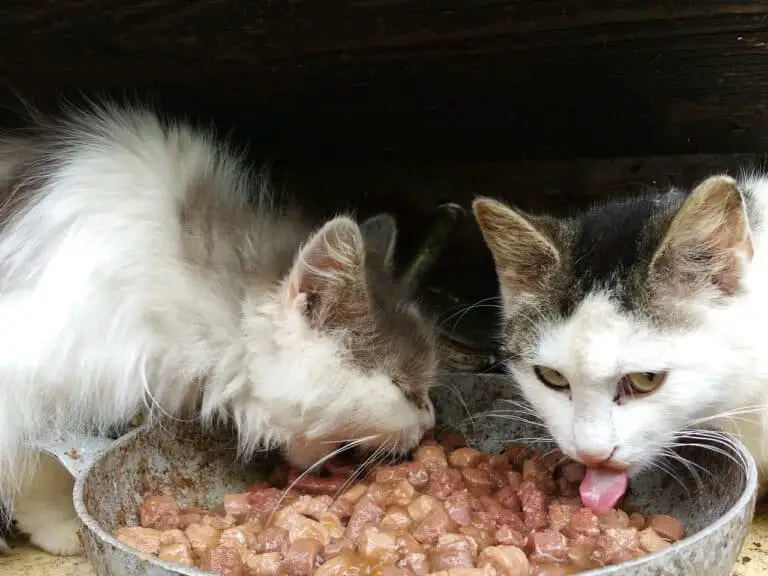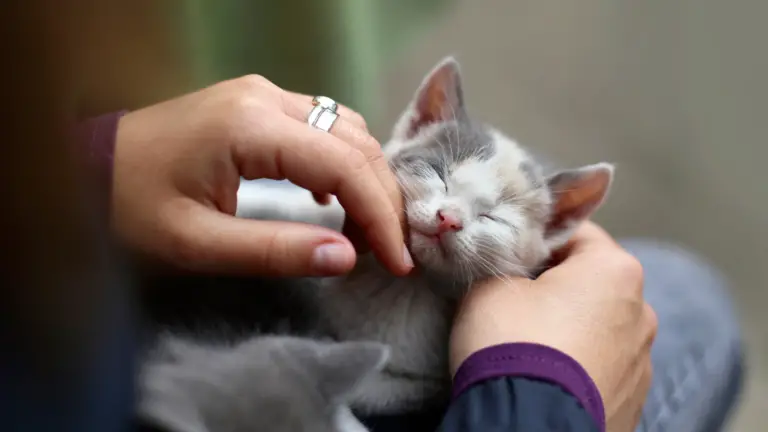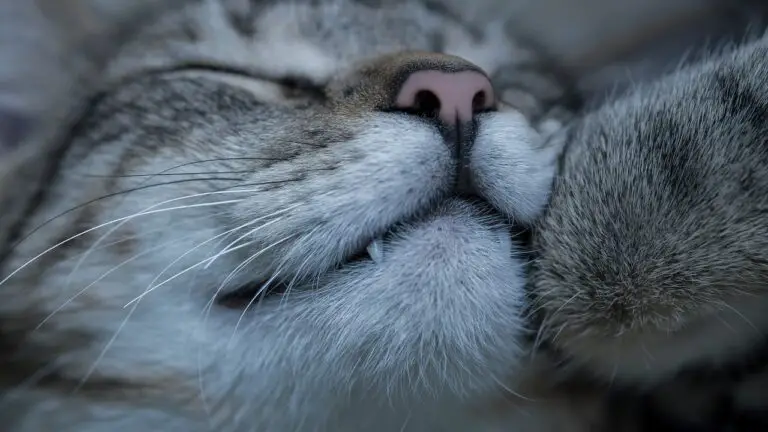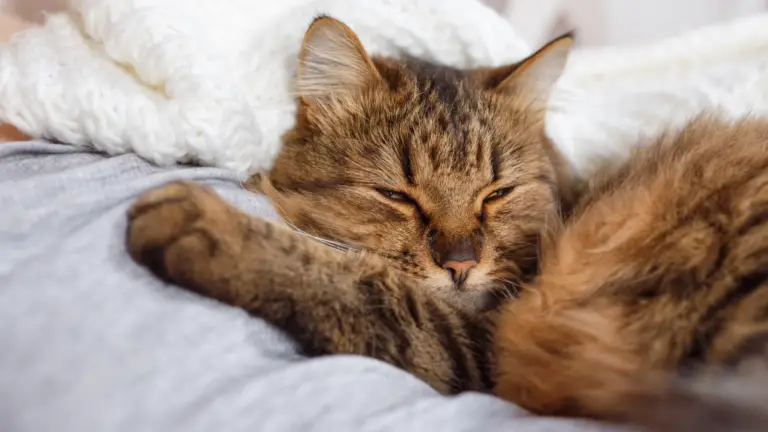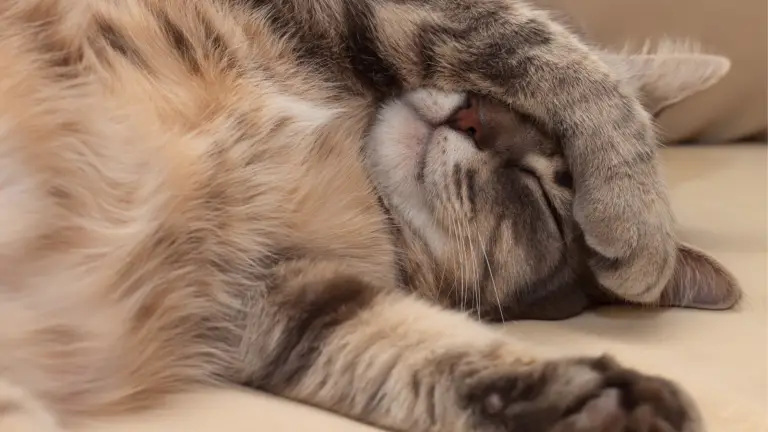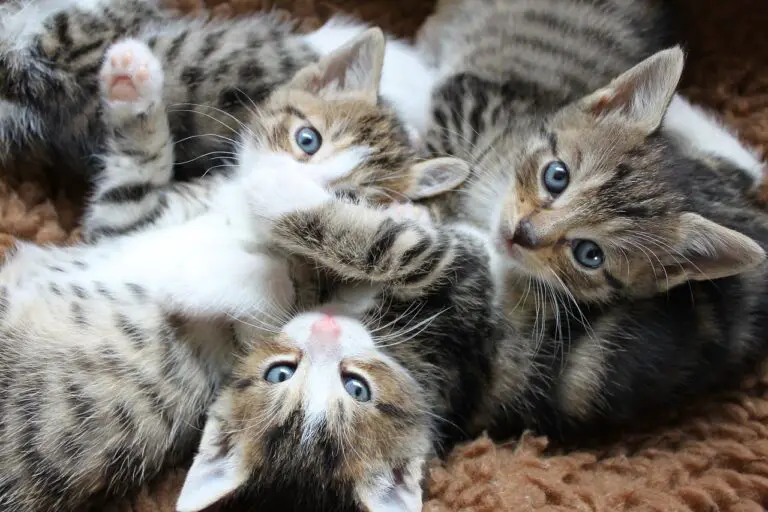HOW DOES MY CAT KNOW I AM AWAKE? 5 INTERESTING FACTS
How does my cat know I am awake? Sometimes as soon as you open your eyes, you see your cat immediately jumping on the bed, waiting for you to stand up. But you did not move at all. However, your cat was able to sense that you woke up.
Cats know that you are awake by the small changes in your breathing, by any sign of movements, or even by the tiny sounds you eventually make just before waking up. Some cats know when you wake up and are there ready for any sign you are awake so they can greet you.
Let’s see how cats can detect their humans are awake.
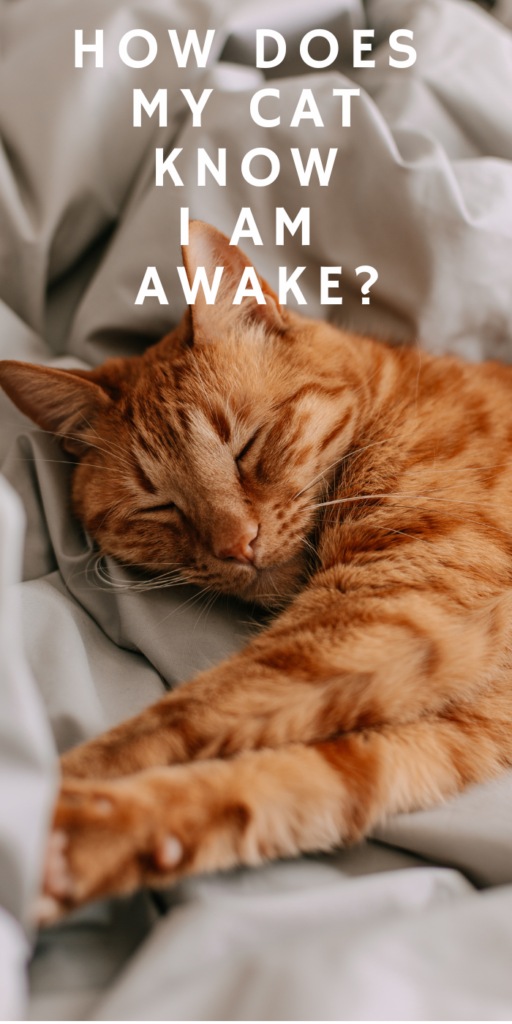
HOW DOES MY CAT KNOW I AM AWAKE?
Cats are known to be highly attuned to their owners’ behaviors and routines, so it’s likely that your cat has become accustomed to your daily schedule and knows when you’re typically awake.
Here are some ways that your cat may be able to tell that you’re awake:
1. SENSING MOVEMENTS
Cats are highly attuned to movement and may be able to sense when you’re moving around in bed or getting out of bed.
Cats have a variety of sensory organs and adaptations that allow them to sense movements in their environment. Here are some ways that cats sense movements:
- Cats have excellent eyesight, especially in low-light conditions. They have a wide field of vision and can detect even subtle movements of prey or potential threats.
- Cats have highly sensitive ears and can pick up on even the slightest sounds. They can hear frequencies too high for humans to detect, which can help them locate prey or potential danger.
- Cat whiskers, or vibrissae, are specialized sensory organs that can detect movement and changes in air currents. Whiskers are highly sensitive and can help cats navigate and hunt in the dark.
- Cats have a keen sense of smell and can detect even subtle changes in odors. This can help them locate prey or identify potential dangers.
- Cats have an excellent sense of proprioception, or body awareness, which helps them sense their own movements and adjust their position in response to external stimuli.
Overall, cats use a combination of visual, auditory, tactile, and proprioceptive cues to sense movements in their environment. These senses are highly developed in cats, making them skilled hunters and agile climbers.
2. LISTENING TO SOUNDS
Cats have excellent hearing and may hear you stirring in bed or making noises as you wake up, indicating that you’re awake.
3. SMELLING YOUR PRESENCE
Cats also have a strong sense of smell, and they may be able to detect your scent as you become more active and start moving around.
4. OBSERVING YOUR BEHAVIOR
Your cat may also be able to pick up on subtle changes in your behavior or body language that indicate that you’re awake, such as changes in your breathing or muscle tension.
Overall, while we don’t fully understand how cats can sense our wakefulness, it’s likely a combination of their acute senses and their ability to observe and interpret our behavior.
DO CATS KNOW WHEN YOU ARE SLEEPING?
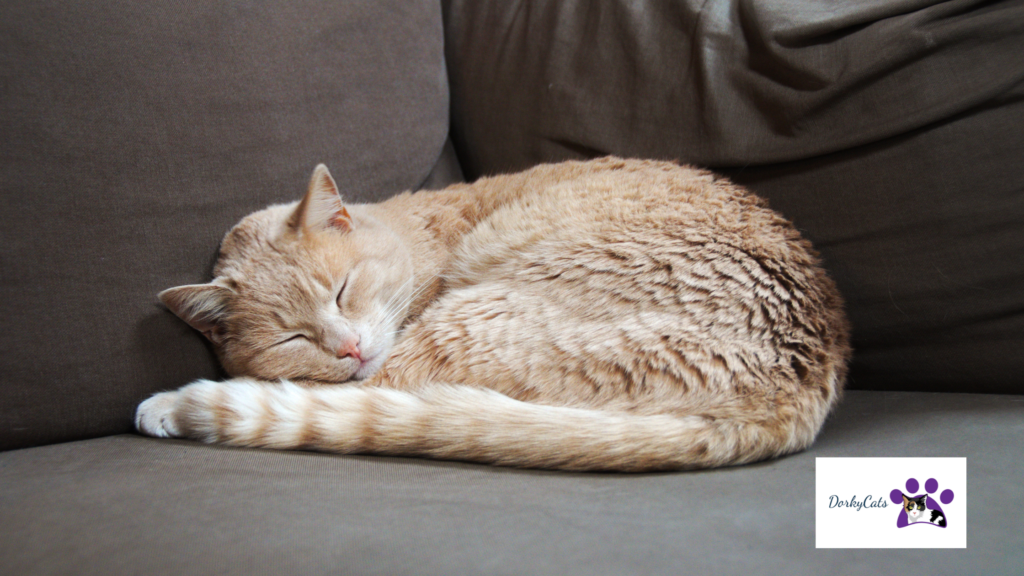
Cats are generally aware when their owners are sleeping. However, cats are creatures of habit and routine, and they often adjust their behavior to match their owners’ schedules.
When you go to bed and settle down to sleep, your cat may notice the changes in your behavior, such as your decreased movement and sound, and may adjust their own behavior accordingly.
Some cats may even prefer to sleep close to their owners, either on the bed or nearby, and may adjust their sleeping patterns to match yours. Others may become more active at night and more likely to play or seek attention while asleep.
It’s also worth noting that cats have their own unique sleep patterns, and they may sleep for much of the day and be more active at night. So, while your cat may be aware when you’re sleeping, they may not always choose to sleep at the same time as you.
DOES MY CAT THINK I AM DEAD WHEN I SLEEP?
It’s unlikely that your cat thinks you’re dead when you’re sleeping. While cats perceive the world differently than humans, they can still distinguish between sleep and death.
When you’re sleeping, your cat may notice that you’re not moving or making noise as much as you normally do, but they’re unlikely to be alarmed or confused by this. Instead, they may use this time to rest and sleep themselves or engage in other activities, such as grooming or exploring their environment.
However, if your cat is particularly concerned or anxious about your well-being, it may come to check on you or try to wake you up.
This behavior may be more common in cats that are highly bonded to their owners or have a history of separation anxiety. But cats generally understand the difference between sleep and death and are unlikely to confuse the two.
WHY DOES MY CAT CHECK ON ME?
Cats are naturally curious animals and often like to keep an eye on their surroundings. So when your cat checks on you, it may be curious about what you’re doing or trying to establish a connection with you.
Additionally, cats are social animals, and many cats form strong bonds with their owners. Your cat may check on you to seek your attention or affection or to make sure you’re okay. If you’re not feeling well or upset, your cat may pick up on these cues and come to comfort you or offer support.
Finally, cats are instinctively attuned to changes in their environment and are often very sensitive to any changes in routine or behavior.
If your cat notices that you’re behaving differently than usual or there’s something in your environment that’s changed, they may come to investigate and ensure everything is okay.
Overall, there are many reasons why your cat may check on you, and it’s likely a combination of their natural curiosity, their desire for social connection, and their instinctive awareness of changes in their environment.
WHY DO CATS SNIFF YOUR FACE WHEN SLEEPING?
Cats are naturally curious animals and use their sense of smell to explore and understand their environment. So when your cat sniffs your face while you’re sleeping, it may be trying to understand you better or checking to see if you’re okay.
Additionally, cats have a keen sense of smell that allows them to detect subtle changes in their environment, such as changes in body temperature or the presence of pheromones. So when your cat sniffs your face, it may be trying to pick up on these cues to better understand your mood or health.
Sometimes, your cat may also try to establish social bonding or comfort. For example, cats often groom each other as a way of showing affection and bonding, and in some cases, your cat may be trying to groom you while you’re sleeping as a way of showing affection and bonding with you.
Overall, there are many reasons why your cat may sniff your face while you’re sleeping, and it’s likely a combination of their natural curiosity, sense of smell, and desire for social bonding and comfort.
HOW DOES MY CAT KNOW WHEN I GO TO SLEEP?
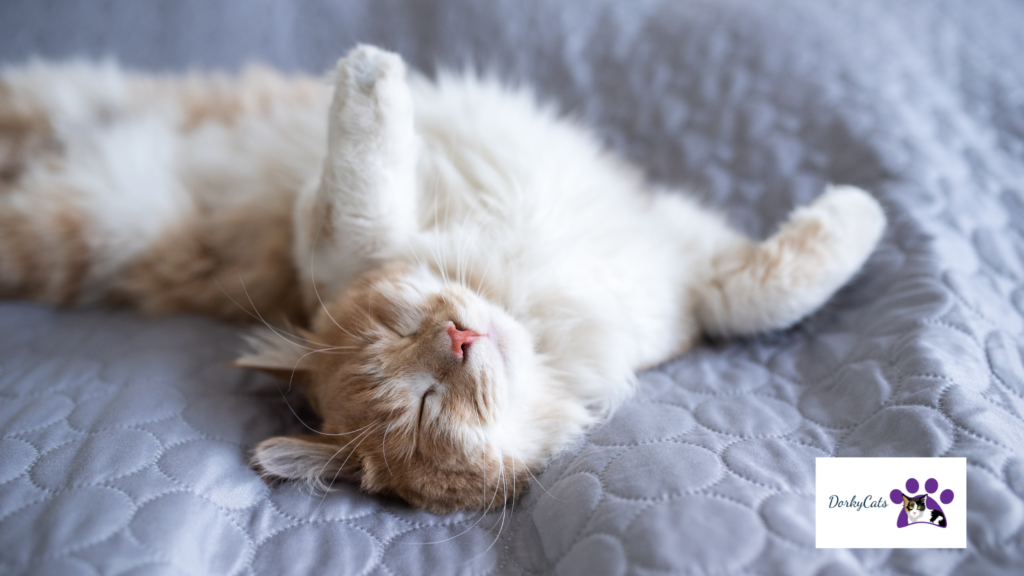
Cats are naturally attuned to changes in their environment and can pick up on subtle cues from their owners.
They may be able to tell that you’re getting ready for bed by noticing changes in your behavior or routines, such as turning off the lights, closing curtains or blinds, or settling down in your bed.
Cats also have a keen sense of hearing and may be able to hear the sounds you make as you prepare for bed, such as brushing your teeth, changing into pajamas, or moving around in your bedroom.
They may also pick up on the scents associated with bedtime, such as the scent of your bed linens or the aromas from any scented products you use to help you sleep.
In addition, cats are creatures of habit and may have learned to associate certain behaviors with bedtime. If you have a regular bedtime routine, your cat may have learned to recognize these cues and can predict when you’re going to bed based on this routine.
Overall, cats are highly perceptive animals and may be able to tell when you’re getting ready for bed based on changes in your behavior, routines, sounds, and scents associated with bedtime.
DO CATS WATCH YOU WHEN YOU SLEEP?
Yes, it’s not uncommon for cats to watch their owners while they sleep. Cats are naturally curious animals, and they often like to keep an eye on their surroundings to stay alert and aware of any changes in their environment.
Additionally, cats are social animals and may watch their owners feel close to them or seek their attention.
It’s also possible that your cat may be watching you to assess your safety or health. Cats are instinctively attuned to environmental changes and may watch their owners to ensure they are safe and sound.
If your cat notices any changes in your breathing or behavior while you sleep, it may become alert and watch you closely.
Overall, cats may watch their owners while they sleep for various reasons, including their natural curiosity, desire for social connection, and instinctive awareness of environmental changes. It’s generally not something to be concerned about and is simply a regular part of a cat’s behavior.
Some cats might stare at you while you sleep, waiting for you to wake up and feed or cuddle with them.
DO CATS CHECK IF YOU ARE BREATHING?
It’s possible for cats to be aware of your breathing patterns, especially if they’re snuggled up close to you while you’re sleeping. This is because cats have a keen sense of hearing and can detect the sound of your breathing.
They may also be able to feel the movement of your chest or abdomen as you breathe.
While cats may notice changes in your breathing patterns, they don’t necessarily check to make sure you’re breathing. Instead, they may simply enjoy the warmth and comfort of being close to you while you sleep.
However, some cats have been known to exhibit protective behaviors towards their humans. For example, they might notice if their human breathing becomes irregular or stops altogether and try to alert others in the household. Again, however, this would be a rare and exceptional case.

